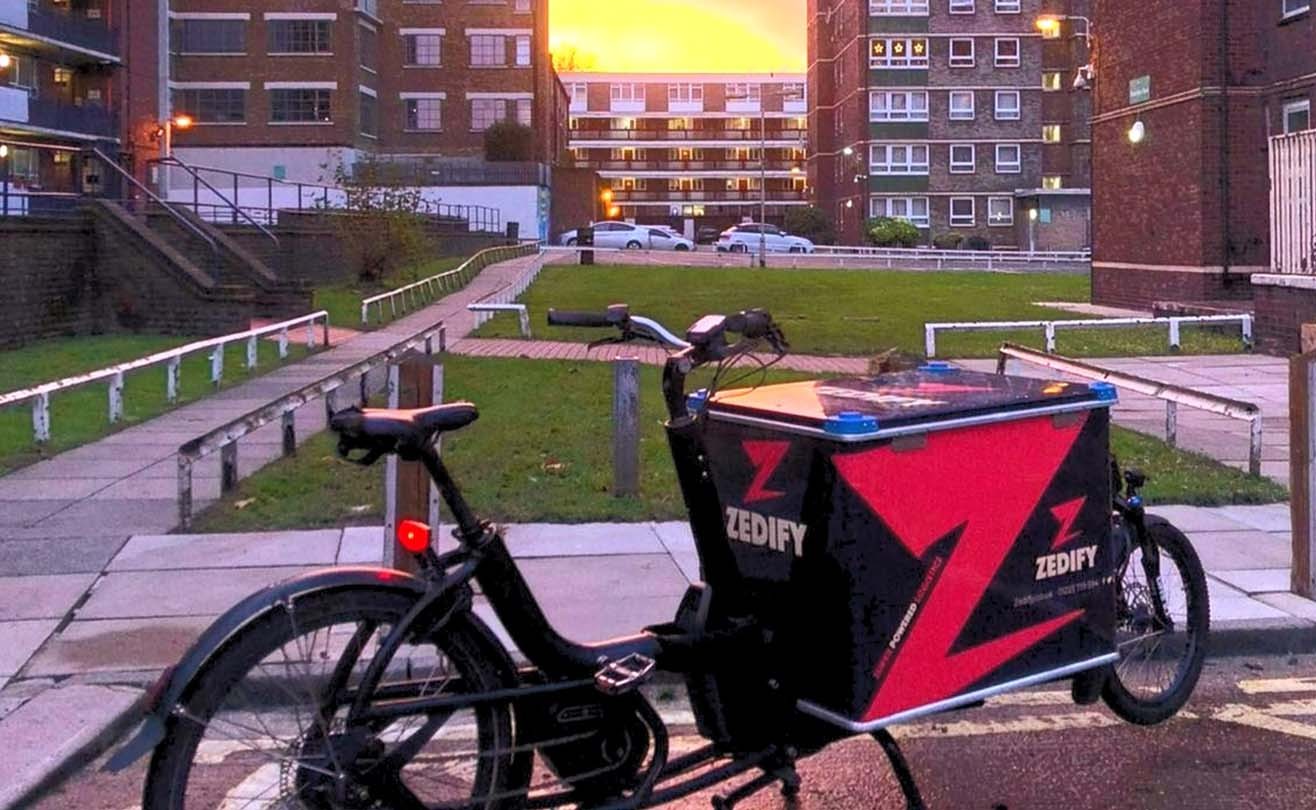
CO27hasfinished.Let’sreflectonour3asksfromCOP26
 November 4th, 2022
November 4th, 2022 Bex Young
Bex Young 8 minute read
8 minute readCOP27 has just drawn to a close. Climate activists and mobility specialists across the globe have been watching and waiting to see whether decarbonising transport made it into meaningful discussion this year. After all, whilst COP26 in Glasgow featured an entire day dedicated to transport – discussing electric vehicles in particular with various talks about active and public transport in there too – the topic only appeared in the schedule after backlash from the EU.
Disappointingly, COP27 didn’t learn from mistakes made the previous year. The schedule didn’t have a dedicated day for transport at all – instead, the topic is one of many items that were discussed on ‘Solutions Day’ on the 16th November. (An after-after thought, you could say.)
With this in mind, it’s time to reflect on and reaffirm our three COP asks from this time last year.
Our first ask from COP26 was: 1/ Stop offsetting delivery emissions as a first step.
Friends of the Earth call carbon offsetting a dangerous distraction and a con. Greenpeace calls offsetting a scam. There’s widespread acknowledgment that offsetting in the absence of other, more concrete action isn’t making a dent in emission reductions, yet it tends to form the basis of corporate and governmental sustainability initiatives. Offsetting will be used as part of getting to net zero, it’s just that the approach right now is backwards. It should be reserved as a final resort for activities that can’t be reduced or removed – not implemented as the first step.
Why are so many businesses doing it this way round, then?
The simple answer is: it’s the easiest way to appear that one is taking action to combat the climate crisis. It’s much easier to plant a tree (or get someone to plant it on your behalf) than it is to address much more fundamental solutions towards emission reduction, such as changing manufacturing processes, passing stringent consumer protection laws or investing large sums of money into sustainable infrastructure improvements. The difference is that the latter actions create meaningful change, and the former in isolation, well – it’s a pretty meaningless exercise.
Time is running out. If we want to see real progress, we need to focus on concrete action, not just a display of it.
So, we were pleased to see that ‘Climate neutral and smart cities with and for citizens’ formed one of the EU Side Events on the 17th November, facilitating discussions on delivering on the Paris Agreement, the legally binding treaty on climate change.
The talk focused on the need for support across all levels and sectors of society for large scale implementation, with ‘fit for purpose’, meaningful solutions. Whether this singular event was a strong enough call to arms remains to be seen, but it’s inspiring to see conversations like this form part of the larger Net Zero discussion.
Onto our second ask of 2021. 2/ EVs are not going to get us all the way to net zero. Champion last mile logistics using cargo bikes more loudly!
Electric vehicles are key part of COP and are often sprinkled around the arenas (see Boris with an electric Formula 1 vehicle at Glasgow), but the invite for cargo bikes seems to have been lost in the post. The UK’s transport plan acknowledges that cycle logistics is a key part of emission reduction, so why are we forgetting about it?
A recent study conducted in Paris found that cargo bikes could be used for up to 91% of all urban deliveries. That’s a whole lot of carbon saved and a whole lot of petrol and diesel left in the pumps – not to mention a much more efficient, pedestrian-and-cycle friendly city.
Ersilia Verlinghieri, senior research fellow at the Active Travel Academy at the University of Westminster in London, says, “Cargo bikes have a cascade of positive effects, including the reduction of air and noise pollution and the improvement of public space. They’re more efficient and a lot cleaner than using vans.”
So – how much did cargo bikes feature in talks on Solutions Day in 2022?
Well – not a lot. Once again, the focus turned to electrifying vans and cars, in particular, passenger vehicles.
At COP26, the UK and its partners launched a “Zero Emission Vehicles Declaration” to accelerate the transition to all new cars and vans being zero emission by 2035 at the latest in leading markets (and 2040 globally, in line with Paris Agreement climate goals). Measuring the success of the declaration appears to come in the form of measuring sales of new EVs – “The impact of the ZEV Declaration is already being realised. BloombergNEF’s newly published ZEV Factbook shows that 2022 is set to be a record year for ZEV sales, with electric vehicles comprising 13.2% of all new vehicles sold in the first half of 2022. This will speed up the move away from fossil fuels, with the expected adoption of electric vehicles and fuel cell vehicles avoiding almost 1.7 million barrels of oil use per day in 2022, about 3.8% of total demand.”
On Solutions Day 2022, the UK-USA-co-chaired Zero Emission Vehicles Transition Council (ZEVTC) launched its new yearly Action Plan, setting out its priorities for 2023. These are yet to be officially published, but we’ll eat our Zedify beanies if cargo bikes feature in this list – and that’s a promise.
Our third and final wish was as follows: 3/ Support local authorities to create strategic, aligned freight plans that allocate space for local micro hubs.
Decarbonisation of urban transport is a complex beast and we realise the inherent struggles of creating the right infrastructure to support it. Across communities there are varied political leanings, funding issues… et al. There are tensions between supporting the transition of freight vehicles to ZE (zero emission) tech without encouraging more private cars on the road and in turn, creating a less pedestrian and cycle friendly city. There are barriers to the roll out of electric vehicle charging infrastructure and funding issues around the same. Technology is changing by the minute and requiring new systems to deploy it, which can make implementing change challenging and expensive – most of the zero emission delivery businesses are start-ups vying for chunks of investment to carry out their mission.
As we said… it’s a complex beast. But transport is the single biggest contributor (by sector) to UK greenhouse gas emissions, and 91% of this comes from road transport in particular, so it’s crucial that we do something about it. The UK has committed to a 68% reduction in emissions compared to 1990 levels by 2030. To smash these goals, we have to start at the biggest source: cars and vans – and we cannot forget that a huge chunk of our emissions come from freight.
So, we have to work together with our local communities – backed by solid governmental support – to build out effective freight plans that work.
There are many ways this can happen.
Global Commercial Director of Zoomo, an e-bike subscription service, Lisa Conibear recommends policies such as bike loan-schemes, e-bike rebates, congestion pricing, improved cycling infrastructure, low-emission vehicle mandates and general awareness raising campaigns. Some of these are ‘quick-win’ solutions that, when enforced by governmental bodies, encourage freight and logistics businesses to make the shift away from harmful fossil fuels. Others require more input, planning and funding, but will provide an equitable and cost-effective solution once implemented.
It was great to see that “Local Green Deals – Implementing global ambitions at the local level” featured as another EU Side Event on the 17th November, allowing discussion of major cities’ achievements towards their green transition and Local Green Deals, and the sharing of knowledge notably in engaging local businesses and citizens in the collaborative process.
But was enabling collaboration on zero emission infrastructure really a priority this year?
Well – the Global Witness campaign group released stats outlining that the number of delegates with links to fossil fuels at COP27 rose 25% from the last conference. 600 people attended the talks in Egypt who are linked to fossil fuels, which is more than the combined delegations from the ten most climate-impacted countries.
On these numbers, Rachel Rose Jackson of the Corporate Accountability campaign group commented, “COP27 looks like a fossil fuel industry trade show.”
Putting it more bluntly was Phillip Jakpor of Public Participation Africa. “If you want to address malaria, you don’t invite the mosquitoes.”
There you have it.
—
The burning question: What can be done on a commercial basis right now to help us get to net zero, bearing in mind the inherent challenges of decarbonisation and the contrasting interests of stakeholders?
Our answer: making the switch to green, efficient cargo bike deliveries, removing 98% CO2 emissions from urban parcel drop offs. With this route, there’s no need to wait for changes in infrastructure or funding (cargo bike deliveries are often cheaper than fossil fuel alternatives), or tech (it already exists).
Now, we just need world leaders on board…
—
Liked this article and want similar content? Make sure to follow us on LinkedIn, Instagram, Facebook and Twitter.




